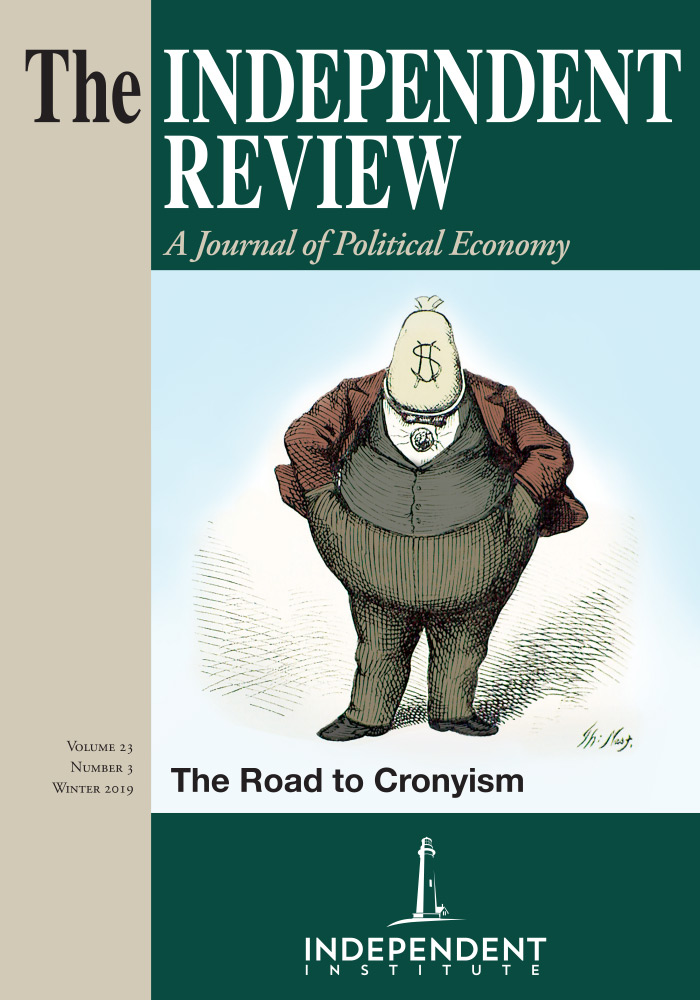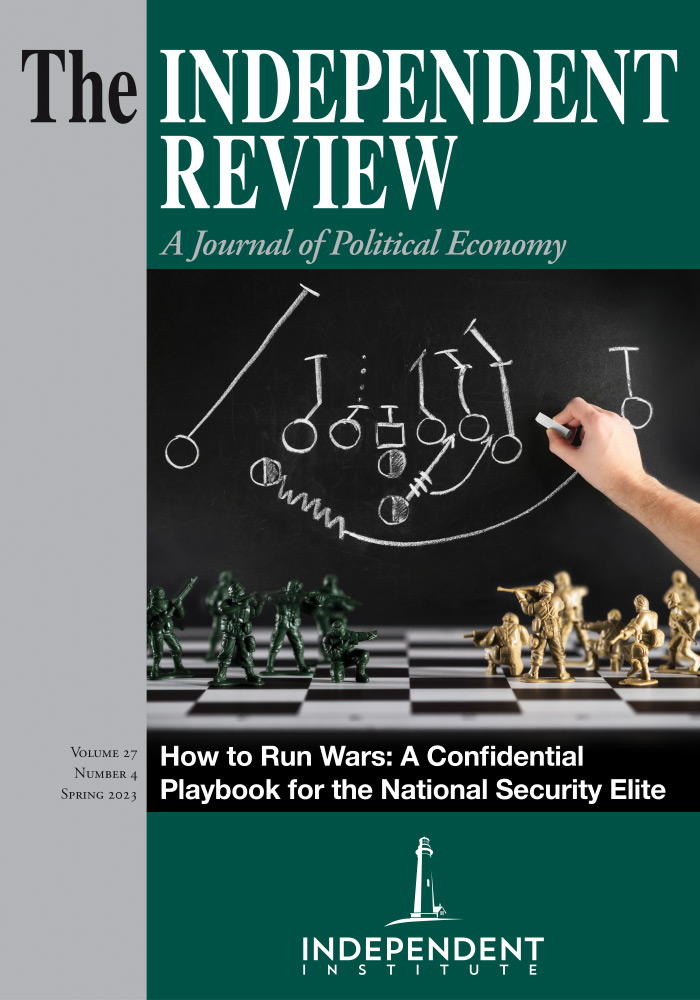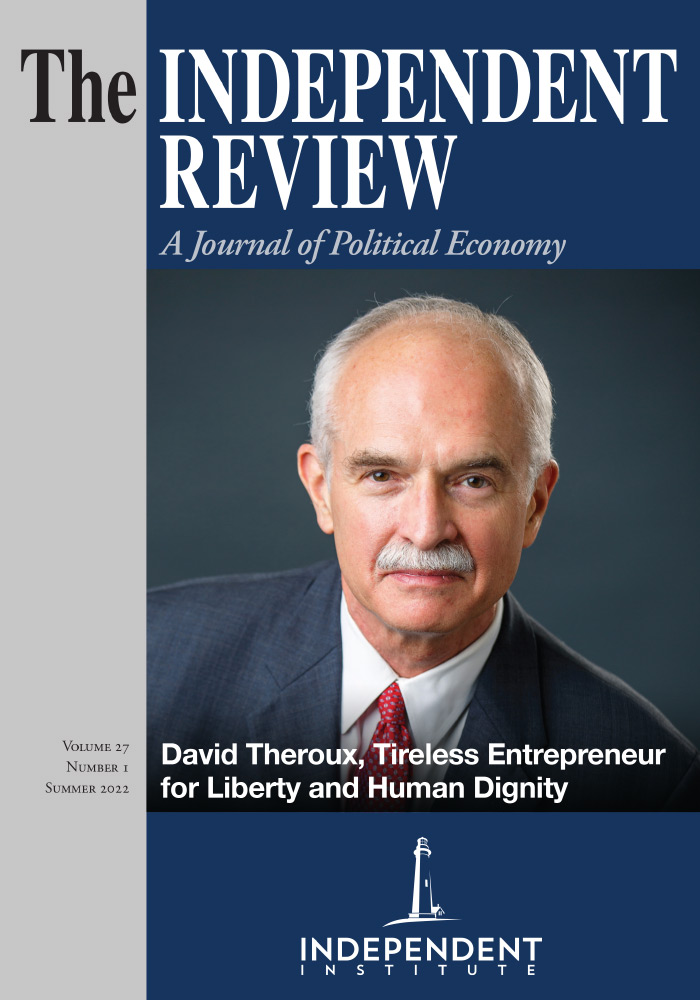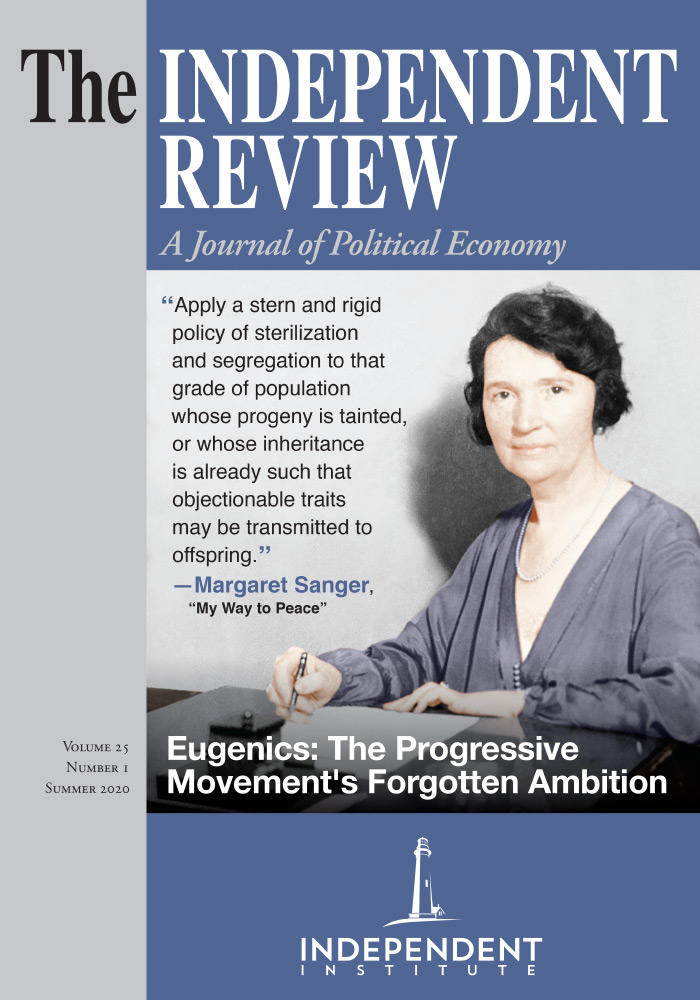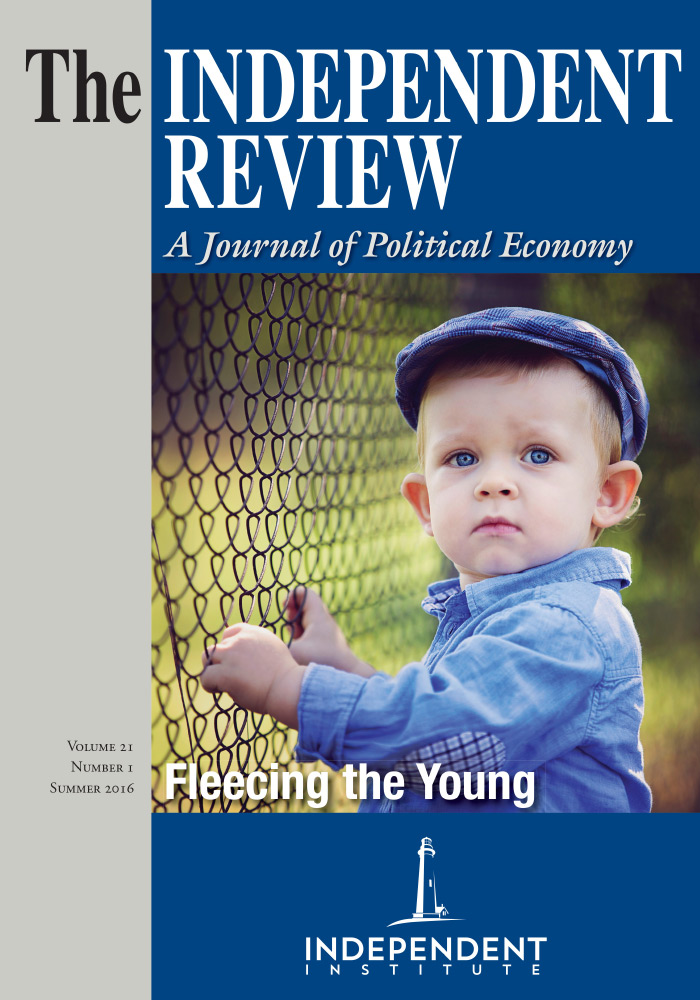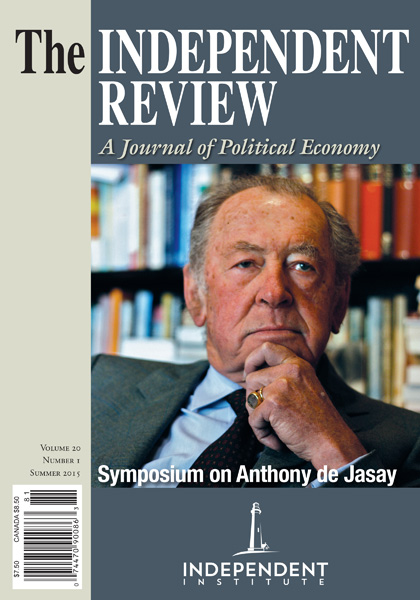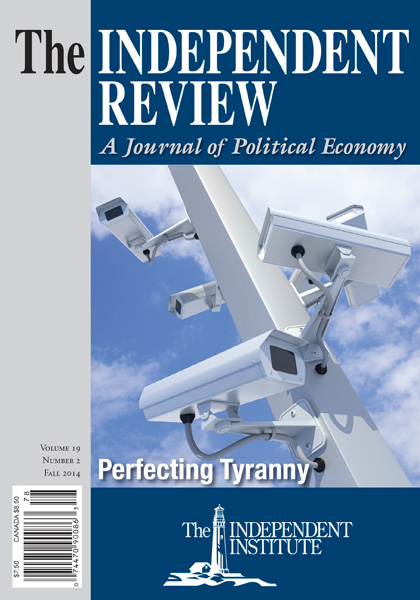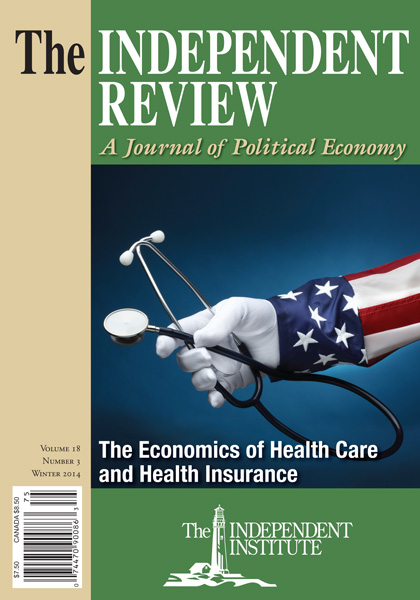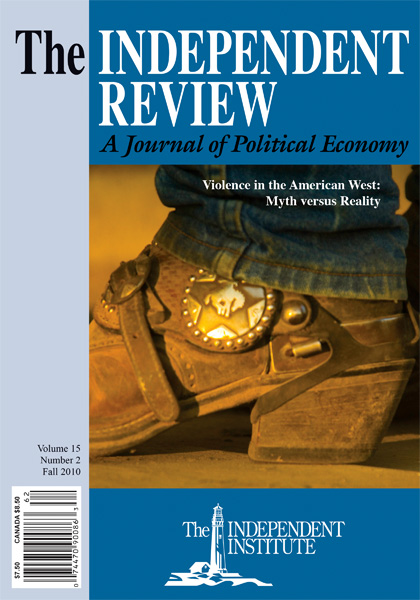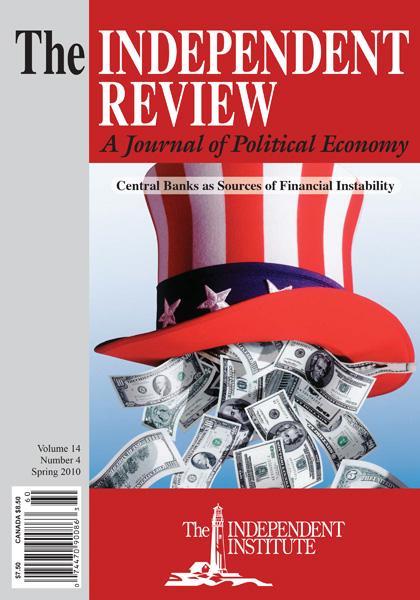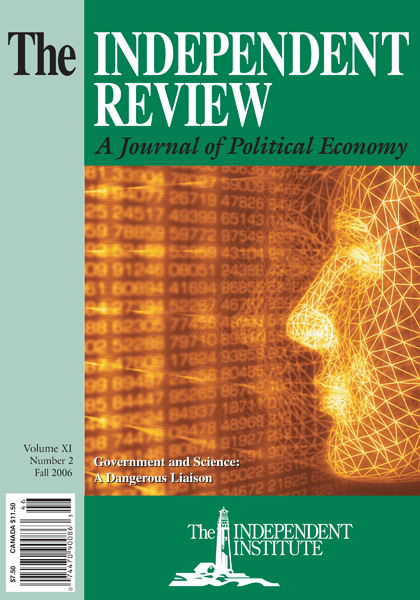In attempting to understand how laissez-faire capitalism morphed into “crony” capitalism, it would be best to consult not Friedrich Hayek’s spontaneous order or the West’s economic history, per se, but John Locke’s Natural Rights/Social Contract philosophy. Such an examination reveals, as well, how the problem can be solved and the laissez-faire arrangement restored and preserved, once and for all. Locke, as no one else, established the precise limits of lawful political power, and those limits preclude the emergence of and any toleration for political cronyism.
Yes, American citizens have the right of free speech and expression, and, yes, they may petition government for a redress of grievances. What counterfeit capitalists plead for, however, is not a redress of grievances but, as per Frédéric Bastiat, plunder. On the contrary, they thereby create legitimate grievances. There is no right to plead with government for special benefits that come at one’s neighbors’ expense. Here’s the clearest way to establish just how limited limited government was meant to be. Thomas Jefferson wrote, “governments are instituted among men deriving their just powers from the consent of the governed” [and from no other source]. That means powers the people do not now and never did possess are powers no government may ever acquire or proceed to exercise. Well, no one has a lawful power to take away or give away what belongs to another, including the just fruits of honest labor. So government may not claim such a power. Listen to Locke (Second Treatise on Civil Government, 1690, paragraph 135): “For nobody can transfer to another more power than he has in himself; and ... having in the state of nature no arbitrary power over the life, liberty or possessions of another, but only so much as the law of nature gives him to the preservation of himself; ... this is all he doth, or can give up to the commonwealth ... so that the legislative can have no more than his.”
It can be said that because the fundamental truths enshrined in the Declaration of Independence never made it into the Constitution, the founding principles would not survive the founding era. Properly understood, the founding principles sanction the laissez-faire arrangement, and no other. That is because each person possesses the right to gain, keep, use, trade, or otherwise dispose of his/her freely acquired possessions. The right of trade (voluntary exchange) protects a nation from political plunder of every description.
When did crony capitalism first rear its ugly head in America? The day the second bill passed by Congress was signed into law by our first president. The Tariff Act of 1789, signed on July 4th of that year, was constitutional insofar as it was designed to raise revenue and pay off the debt left by the late Revolution. But that act also allowed “for the encouragement and protection of manufactures.” The point is that once Congress conferred special benefits on some, it summarily denied equal protection under law to all.
The nation’s first tariff act, in principle, authorized Congress to adopt protective tariffs, basically sales taxes on imported goods. In time, by restraining free, international trade that allowance would allow domestic manufactures to raise prices and boost their profits. From the first, “infant” industrialists lobbied hard to win those special advantages. And down to the present day, win them they would. (Business leaders also lobbied for national banks and internal improvement projects. These, too, fed the fires of cronyism.)
But southern planters and western farmers, “unprotected” and selling their produce for whatever it would fetch, had to pay higher than market prices for the tools, utensils, weapons, textiles, etc., they would buy. Perhaps more critically, since their foreign customers would necessarily export much less to America, they would have much less foreign exchange with which to buy American cotton and other agricultural products. Farmers, who made up the majority of the country, were thus cheated twice over. The slavery question aside, nothing so divided the country in conflict as these protective tariffs and other rising forms of crony capitalism. One need look no further than to the nullification crisis that ensued upon passage of the so-called “Tariff of Abominations” in 1828.
That did not exhaust the unjust inequality protective tariffs produced. Retaliatory tariff measures imposed by our trading partners and the overall reduction in transatlantic traffic also left shipbuilders, seaport merchants and thousands employed in the maritime trades as disadvantaged as were the farmers and planters .
How did we get from that day to this? The principle is plain. Once the nation decided that some of its citizens have a right not to go out and get, but to lobby Congress and be given, it faced two questions: Who else should be given? And how much should everybody get? There could be only one answer: politics. The rest, as they say, is history, a sordid history of corrupt bargaining and compromise. As Burton Folsom points out, the Union and Central Pacific rail projects, which enjoyed lucrative land grants and cash subsidies, were a fitting and highly consequential expression of crony capitalism. Shortly after completion the road and principals behind it (notably the Washington power player, Jay Cooke) went bust sparking the Panic of 1873, the “Great Depression” that ensued and the deep labor unrest that arose by 1877 (as the railroads had to cut pay and employee roles).
At the height of the Great Depression, Samuel Pettengill, writing in Jefferson: The Forgotten Man (New York: America’s Future, 1938, 135), expressed it best: “When it is said that free enterprise has failed, my answer is we have not permitted it to work.” In sum, the principles laid out in Jefferson’s immortal Declaration (and reprised in the Virginia Declaration of Rights penned by George Mason and the Massachusetts Declaration of Rights penned by John Adams make of government a protector, not a provider. To retrieve and preserve a laissez-faire political economy, that is the understanding that now needs to be revived.
| Other Independent Review articles by Jerome Huyler | |
| Summer 1997 | The Myth of American Individualism |
| Spring 1997 | Was Locke a Liberal? |

